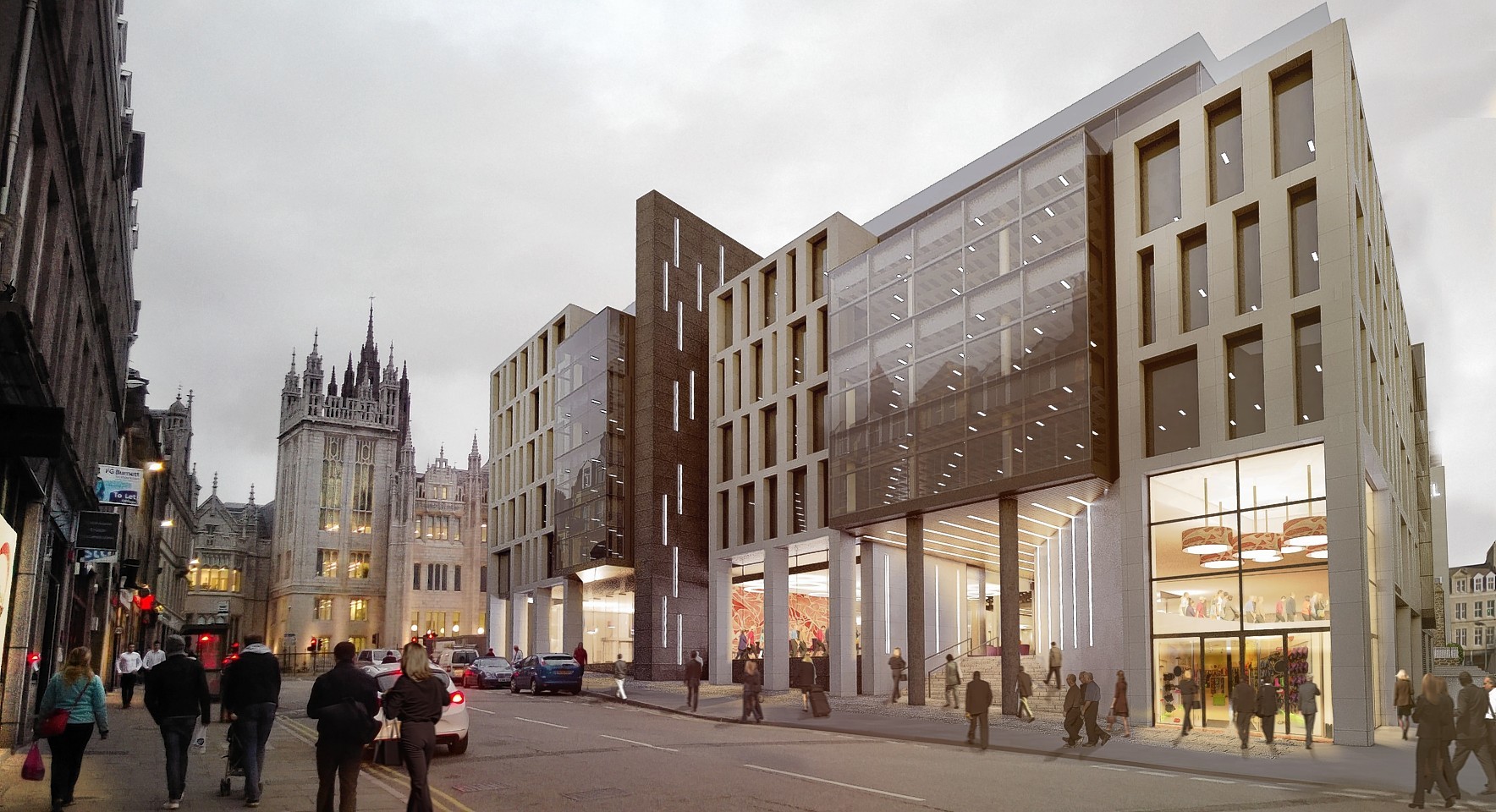Controversial plans for a £107million hotel, office and retail development in the heart of Aberdeen have been recommended for approval by city council planners.
A report to be considered at a meeting next week has backed the proposals from Muse Developments Ltd for the site of the former local authority headquarters at St Nicholas House.
The Marischal Square project has met strong opposition locally, with more than 1,200 people signing a petition urging councillors to rethink the scheme.
A public hearing held on August 29 also heard from a number of objectors, including Aberdeen Civic Society, which urged elected members to “cherish” the architectural heritage of the city.
The application won the backing of Historic Scotland, however.
The conservation body argued that the setting of A-listed gems such as Provost Skene’s House, Greyfriars John Knox Church and Marischal College could be “positively transformed” by the new development.
The local authority’s head of planning, Margaret Bochel, has recommended the scheme for approval, subject to an agreement on a financial contribution to the council’s strategic transport fund.
But the issue of pedestrianising Broad Street, which prompted major retailer John Lewis and the owners of the Bon Accord and St Nicholas Centres to object to the application, has been bypassed.
The report says that planning permission is not required to close the road to traffic between Queen Street and Upperkirkgate, and as such will “not be considered” as part of the assessment of the application.
Councillors have already expressed concern about to the feasibility of the closure, which would reroute more than 60 buses an hour on to surrounding streets such as Upperkirkgate, Schoolhill and Union Terrace.
The council’s own team leader for roads projects, Tom Roger, told the public hearing in August that traffic modelling had shown the closure of Broad Street would cause “gridlock” at peak afternoon times if it happened prior to the completion of the Aberdeen Western Peripheral Route (AWPR).
Mr Roger suggested that the road should remain open until the bypass is completed in 2018.
The report prepared for Wednesday’s meeting of the full council leaves the door open for the authority to pedestrianise the street, but does not say it will definitely happen.
Ms Bochel states that planning consent is not required because Aberdeen City Council, as roads authority, would carry out the work, rather than the developer.
She adds that any work would be covered under the Town and County Planning (Scotland) Order 1992.
She adds: “Taking account of this background, determination of this application will not extend to assessment of pedestrianisation, nor its associated effects on the transport network, including noise and air quality.”
Several councillors contacted last night declined to comment on the application, fearing that any statement may preclude them from voting on the issue next week.
Privately, members of the planning committee expressed surprise that the council would not require planning permission to close-off a busy street in the city centre to all traffic.
